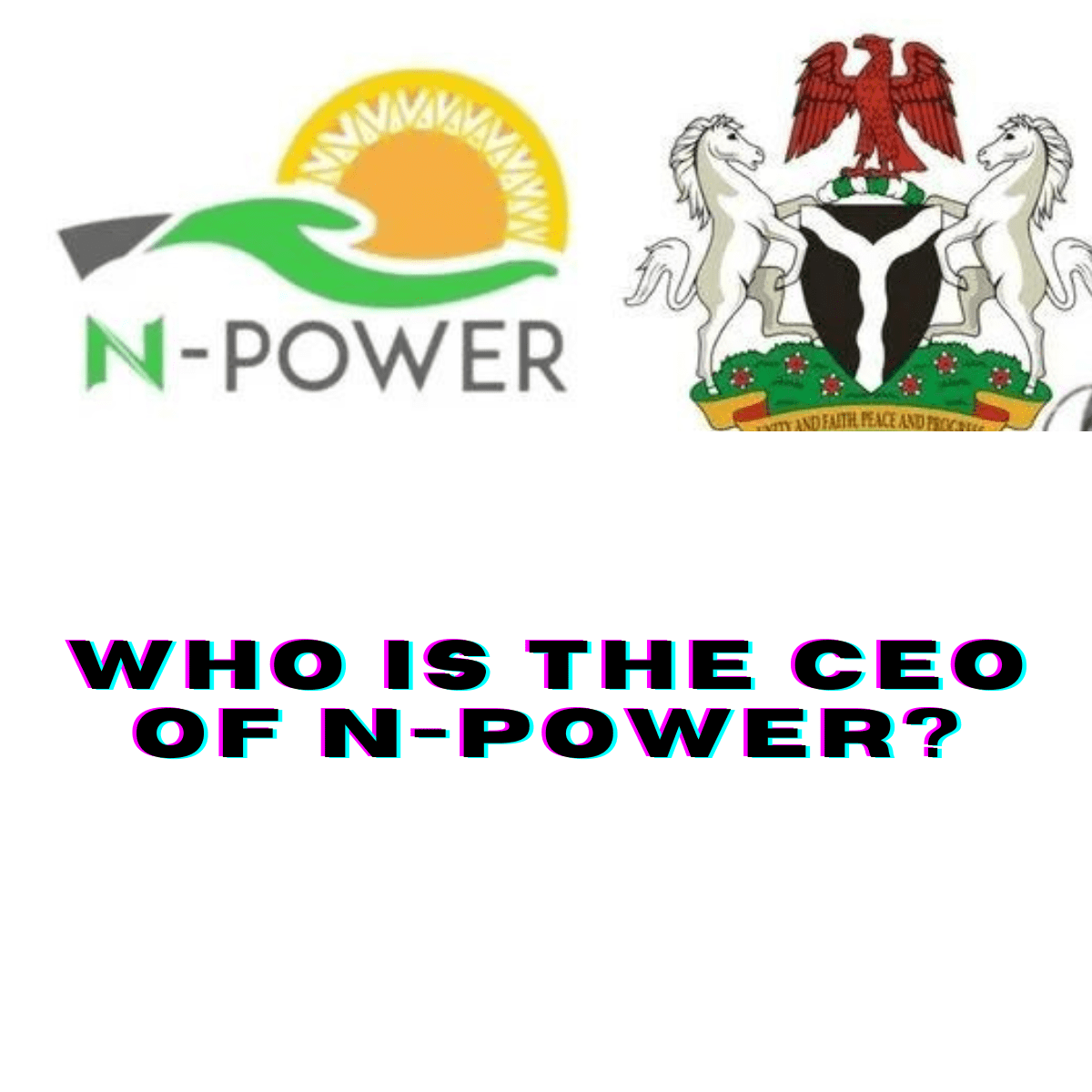In the vibrant tapestry of Nigerian socio-economic development programs, N-Power stands out as a beacon of hope and transformation. Launched as part of the National Social Investment Program (NSIP) by the Nigerian government, N-Power is designed to address the challenges of youth unemployment and to promote social development. But behind the scenes of this impactful program is a leadership team spearheaded by a visionary CEO. Who is this key figure leading N-Power into a future of greater opportunities and empowerment for Nigerian youths? Let’s delve into the essence of N-Power’s leadership, exploring the CEO’s role, achievements, and the program’s profound impact on Nigerian society.
Understanding N-Power and Its Mission
N-Power is more than just a program; it’s a mission aimed at creating a network of skilled young Nigerians who are not only employable but are also equipped to become innovators and entrepreneurs. It offers a platform for young Nigerians to acquire and develop life-long skills to become solution providers in their communities and to improve their livelihoods. The initiative focuses on various sectors, including education, healthcare, agriculture, and technology, thereby contributing significantly to the nation’s socio-economic development.
The person at the helm of N-Power, the CEO, plays a pivotal role in steering the program towards achieving its lofty objectives. This individual’s responsibilities encompass strategic planning, oversight of program implementation, stakeholder engagement, and ensuring the sustainability of the program’s impact on its beneficiaries and the broader Nigerian economy.
The Leadership Behind N-Power
As of my last update, the CEO of N-Power has been a figure of dynamic leadership qualities, embodying dedication, innovation, and a deep understanding of the challenges facing Nigerian youths. While the name of the CEO can change due to governmental reshuffling or programmatic shifts, the essence of what they stand for remains constant: a commitment to empowering Nigerian youths for a brighter future.
The CEO, with a background in social work, education, or public administration, typically brings a wealth of experience in managing large-scale social programs. They are tasked with ensuring that N-Power remains aligned with its core mission of reducing unemployment and promoting social development through skill acquisition and job creation.
The Impact of N-Power Under Its Leadership
Under the guidance of its CEO, N-Power has made significant strides in empowering Nigerian youths. The program has successfully enrolled thousands of beneficiaries across its various components, including N-Teach, N-Health, N-Agro, and N-Tech, providing them with valuable training and work experience. This initiative has not only helped to alleviate the unemployment rate among Nigerian youths but has also contributed to the improvement of public services in education, health, and agriculture.
Furthermore, N-Power has been instrumental in fostering a spirit of entrepreneurship among its participants. Many beneficiaries have gone on to start their own businesses, leveraging the skills and experiences gained through the program. This entrepreneurial drive is supported by the program’s provision of start-up grants and mentorship, showcasing the CEO’s commitment to sustainable socio-economic empowerment.
FAQs About N-Power and Its Leadership
Q1: How does N-Power select its participants? A1: N-Power selects participants through a rigorous, transparent application process designed to identify young Nigerians who are most likely to benefit from and contribute to the program’s objectives.
Q2: What kind of training does N-Power provide? A2: N-Power offers comprehensive training programs tailored to the needs of different sectors, including education, health, agriculture, and technology. These programs are designed to equip participants with the necessary skills to thrive in their respective fields.
Q3: Can N-Power beneficiaries secure permanent employment through the program? A3: While N-Power is primarily a skills development and work experience program, many beneficiaries have secured permanent employment as a result of the training and exposure they received. Additionally, the program encourages entrepreneurship, providing another pathway to financial independence.
Q4: How is the success of N-Power measured? A4: The success of N-Power is measured through various metrics, including the number of beneficiaries enrolled, the quality of training provided, the rate of job placement or entrepreneurial ventures post-program, and the overall impact on reducing unemployment among Nigerian youths.
In conclusion, the CEO of N-Power plays a crucial role in the success and direction of the program. Through visionary leadership and a deep commitment to Nigeria’s youth, the program continues to make strides in addressing the challenges of unemployment and skill development. N-Power stands as a testament to the power of strategic social investment in nurturing the potential of young Nigerians, thereby contributing to the nation’s socio-economic development. As N-Power evolves, the leadership and vision of its CEO will undoubtedly remain pivotal in driving the program toward new heights of success and impact.
